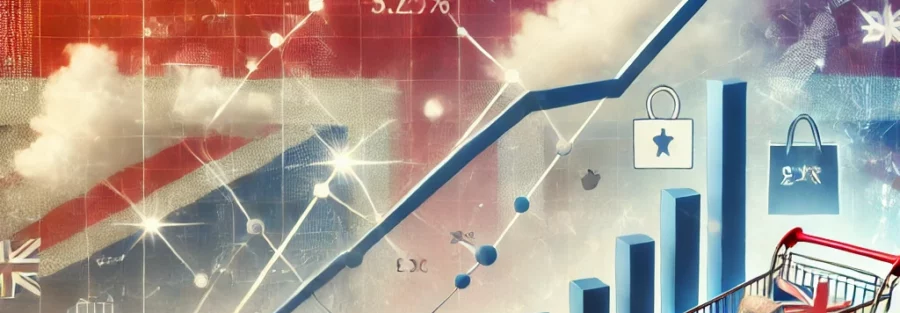UK inflation rose for the second consecutive month, solidifying expectations that the Bank of England (BoE) will keep interest rates unchanged at its upcoming meeting later this week.
Annual consumer price inflation increased to 2.6% in November, up from 2.3% in October, moving further away from the BoE’s 2.9% medium-term target. On a monthly basis, inflation rose by 0.1%, a slower pace compared to the 0.6% jump in October.
These figures were largely in line with analyst expectations, which predicted a 2.6% annual increase and a 0.1% monthly rise.
Encouragingly, core CPI—excluding volatile energy and food prices—remained flat month-on-month, causing the annual rate to edge up to 3.5%, slightly below the anticipated 3.6% and up from 3.3% in October.
Earlier this year, the annual inflation rate had dipped to 1.7% in September, the lowest since April 2021. However, it has since climbed back above the 2.0% mark, though it remains well below the 11% peak seen two years ago following the outbreak of the Ukraine war.
Meanwhile, data released on Tuesday showed British wages grew more than expected in the three months to October, heightening concerns about underlying inflation pressures. This has prompted expectations that the BoE will tread carefully regarding interest rate cuts in 2024, especially after the Oct. 30 budget, which introduced higher taxes on employers—potentially driving up prices and wages further.
The BoE’s Monetary Policy Committee is scheduled to meet on Thursday, with markets anticipating a pause in rate adjustments. Traders currently predict the BoE will cut rates by approximately 70 basis points next year, compared to similar expectations for the U.S. Federal Reserve and about 120 basis points in rate cuts projected for the European Central Bank.





